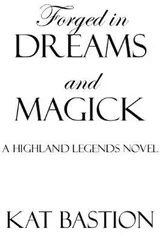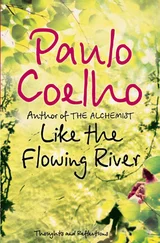At the end of her life, God and Christ, Heaven and Hell, all those emblematic ideas became terrifyingly real to her. I suppose she was concerned about going to Hell. She had shot a man, after all. When the Russians entered Vienna at the end of the war, they were hellbent on rape, destruction, and pillage. They opened all the wine cellars in Vienna. Wine running down the streets; all the Russian soldiers had to do was open their mouths and the wine ran in. They got blind drunk, and then raped every woman in sight. A Russian soldier from the steppes burst into the room where my mother and grandmother were hiding. He raped my mother and was about to rape my grandmother, at which point Eva picked up a gun and shot him. It was justifiable homicide, of course – but murder in the eyes of the church.
As a result of the rape my mother had to have an abortion. After the Russians came to Vienna, there were long lines of women queuing up to have abortions. I’ve heard that when a woman has had an abortion, she always wants to have a child. Certainly, this explains why Eva wanted to marry my father and have me.
After my parents divorced, my mother and I moved into 41 Milman Road in Reading. I was about seven at the time and, looking back, I can see that Eva was relatively happy when in Reading. She was teaching and I was going to school and things were okay, but I don’t think she realised it until long after it was over. I’ve found that the ability to realise you’re happy while it’s happening is actually quite elusive.
Eva got a job teaching maladjusted children, as they were then called: children from broken homes who’d gone through hellish lives. And of course she was very good at it. Filled with empathy, she taught them dance, current affairs and art. Eva taught a type of free dance, very much like Isadora Duncan. The children danced in bare feet, made symbolic gestures, and acted out expressive scenes. Sometimes I would go to her classes, which was quite a strange experience. These kids were very disturbed; they had gone through truly terrible experiences and some had done horrible things. I remember one boy had killed some kittens, and he was obviously going to grow up to be a psychopath. That was my unforgiving, childlike take on it. If I saw them being rude to my mother, I would freak out and yell at them, which did no good whatsoever. Eva, in a very matter-of-fact way, would just give them a smack – not hard, but just a quick clip, like a mother lion.
Eva also taught dance at my school for a while and I found myself put into one of her productions. At fourteen, I was playing the lead in The Snow Queen and, right in the middle of the performance, I got my first period. There was blood on my white costume, and even worse I had absolutely no idea what it was. My mother took no notice.
‘The show must go on,’ she said. ‘Just ignore it.’
When he was a young man my mother’s father fell in love and married an eighteen-year-old Jewish girl from Hungary. Coming from his aristocratic family this was a highly unusual thing to do – and of course his family opposed the marriage, but her family even more violently. One time Eva’s grandmother asked her to go to the synagogue with her, and Eva refused. She had been brought up a Catholic and Catholics aren’t supposed to attend other people’s churches. Many years later Eva still regretted it, which was probably why she became so ecumenical when she got older.
When the Nazis came to power in Vienna they insisted Jews wear the Star of David on their arms. My grandfather was outraged that his wife should be subjected to this indignity and said to my mother: ‘Come on, Eva, we’re going to visit the head of the Gestapo, and we’ll see about this!’ He put on his Tyrolean hat and his cloak – he was very tall and imposing – and as he strode along the street in a fury , my mother, quite frightened by the whole business, was trying to keep up with him. Eventually they got to the Gestapo headquarters and my grandfather announced himself.
‘Baron Sacher-Masoch,’ he said. ‘I demand to see the officer in charge!’ They were shown in to the office of the head of the Gestapo in Vienna, who turned out to be an ensign in my grandfather’s regiment in the First World War.
‘What’s this nonsense about my wife having to wear a Star of David?’ my grandfather asked him. ‘I want you to cancel that order immediately. ’ And this officer – my mother always used to call him by some daft German name like Bumpfelkaeger – who clearly hero-worshipped my grandfather, answered immediately: ‘Oh, mein Kolonel , mein Kolonel , itis fine, it is fine, sir. I’ll give you the papers right now. Of course, Frau Baroness Sacher-Masoch doesn’t have to wear the Star of David.’
And with that he gave my grandfather the documents exempting her. My grandfather snatched up the papers and swept out of the room. As he got to the doorway, he stopped and turned back and fixed Herr Bumpfelkaeger in his sights, head of Gestapo in Austria, a very powerful man, and said: ‘If I had known in the First World War what you were going to become, I would have shot you in the trenches!’ Despite the fact that my grandmother had converted to Christianity, she still attended synagogue on high holy days. Conversion was not uncommon among Jews in Austria at that time. For instance, Karl Kraus, the famous aphorist, gadfly, and playwright, was an assimilated Jew. That’s why the Second World War and the Nazi racial laws came as such a shock. Many people felt that first and foremost they were Germans or Austrians or Hungarians. My grandmother thought of herself as a Hungarian patriot. She’d grown up in Hungary and had strong feelings about Hungarian independence even though she was married to an Austrian army officer.
As I grew older I got a far more edgy picture of my mother’s past than the one I had previously heard from her. One curious story about my mother’s past life in the Weimar Republic takes place on the Kurfü rstendamm, the equivalent of Fifth Avenue in Berlin, where all the fancy shops – and prostitutes – were.
One night my mother was coming back from dancing and befriended a streetwalker. In the Weimar period, streetwalkers used to put little red reflector lights in their high heels; that’s how you could tell they were whores. When Eva crossed the Kurfü rstendamm to go to her apartment, which was in a rough area, this girl would walk with her and protect her. They would talk along the way about this and that and how much they had in common despite the differences in their lives. That, at least, was my mother’s story. In her telling, this pretty prostitute drops my mother off at her house and there the story ends. I’ve always wondered what happened next, but I was too young and afraid to ask. My mother was somewhat bisexual, but this didn’t help her understand my own proclivity in this area. Eva had been quite wild and bohemian when she was young, but by the time I knew her, she had changed into another person entirely. Motherhood does that. But she still had the odd girlfriend – and certainly boyfriends. I can see that one of the reasons I was sent to the convent was so that my mother could have a sex life.
In my mother’s past I sensed strange currents beneath the surface. There are pictures, for instance, of my mother dressed up in boys’ clothes, snapshots of her in tights and doublets as if she were doing a Shakespeare play – it was an interesting, free time and I’m pretty sure Eva was in the thick of it. She had friends who were costume designers and set designers and painters and dancers and prostitutes and writers, and one or two very rich boyfriends, as well. She was living the high life until the Anschluss happened.
Читать дальше












